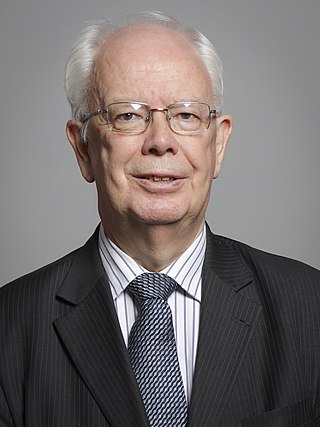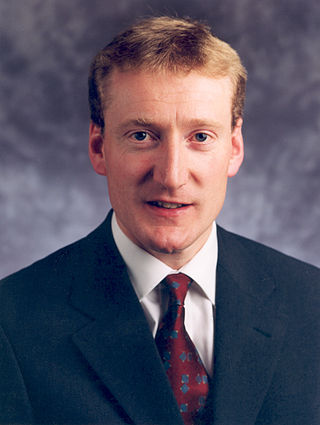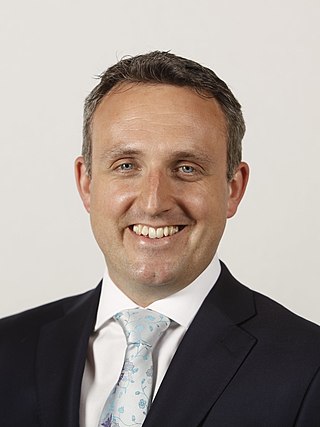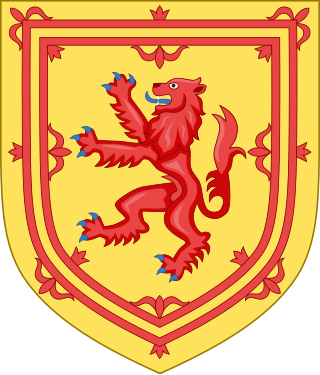
James Robert Wallace, Baron Wallace of Tankerness, is a Scottish politician serving as a Liberal Democrat life peer in the British House of Lords since 2007 and Moderator of the General Assembly of the Church of Scotland from 2021 to 2022. He served as the Deputy First Minister of Scotland from 1999 to 2005, and during that time he served twice as acting First Minister, in 2000, in the aftermath of Donald Dewar's death and in 2001, following Henry McLeish's resignation. He was formerly Leader of the Scottish Liberal Democrats from 1992 to 2005 and Liberal Democrats in the House of Lords from 2013 to 2016.

James Ross Finnie is a Scottish Liberal Democrat politician and a former Member of the Scottish Parliament (MSP). He is a former Minister for the Environment and Rural Development in the Scottish Executive, and Member of the Scottish Parliament for the West of Scotland region. He became an MSP in the first elections to the Scottish Parliament in 1999, and held the same ministerial portfolio until May 2007.

Tavish Hamilton Scott is a former Scottish politician. He was the Member of the Scottish Parliament (MSP) for Shetland from 1999 to 2019, and Leader of the Scottish Liberal Democrats from 2008 to 2011. He stepped down as Leader after the 2011 Scottish Parliament election, in which the Liberal Democrats were reduced to five seats, down from 16 in the previous parliament.

Nicol Ross Stephen, Baron Stephen is a Scottish politician who served as Deputy First Minister of Scotland and Minister for Enterprise and Lifelong Learning from 2005 to 2007. A member of the Scottish Liberal Democrats, he was the Member of the Scottish Parliament (MSP) for Aberdeen South from 1999 to 2011, and was leader of the Scottish Liberal Democrats from 2005 to 2008.

Michael John Rumbles is a former Scottish Liberal Democrat politician. He served as a Member of the Scottish Parliament (MSP) for North East Scotland, from 2016 to 2021. He previously represented West Aberdeenshire and Kincardine before being defeated at the 2011 election in the successor constituency of Aberdeenshire West).
The 1999 Liberal Democrats leadership election was called following the resignation of Paddy Ashdown as Leader of the Liberal Democrats. There were five candidates and all members of the party were balloted using the Alternative Vote preference system. The election was won by Charles Kennedy, who served as leader until his resignation in 2006.
The Scottish Liberal Democrats is a liberal, federalist political party in Scotland, a part of the United Kingdom Liberal Democrats. The party currently holds 4 of the 129 seats in the Scottish Parliament and 4 of the 59 Scottish seats in the House of Commons.

William Cowan Rennie is a Scottish politician who served as the Leader of the Scottish Liberal Democrats from 2011 to 2021. He has served as the Member of the Scottish Parliament (MSP) for North East Fife since 2016, and previously as a list MSP for Mid Scotland and Fife and as Member of Parliament (MP) for Dunfermline and West Fife.

The 2011 Scottish Parliament election was held on Thursday, 5 May 2011 to elect 129 members to the Scottish Parliament.

The 2007 Scottish Parliament election was held on Thursday 3 May 2007 to elect members to the Scottish Parliament. It was the third general election to the devolved Scottish Parliament since it was created in 1999. Local elections in Scotland fell on the same day.
The 2007 Liberal Democrats leadership election was held following the resignation of Sir Menzies Campbell as leader on 15 October 2007, after 19 months as leader of the Liberal Democrats, the third-largest political party in the United Kingdom. Vincent Cable, the deputy leader of the parliamentary party, was acting leader until the conclusion of the leadership election. The result was announced on 18 December 2007 with Nick Clegg winning by a narrow margin of 1.2%.
The 2008 Scottish Liberal Democrats leadership election was an election to choose a new leader of the Liberal Democrats in Scotland, triggered following the resignation of Nicol Stephen for personal reasons. Deputy leader Michael Moore took over as interim party leader, and the timetable for the election was agreed on 5 July 2008: Nominations closed on 24 July 2008, the return of the ballot papers was set for 26 August 2008 and the declaration of results occurred on the same date. The last leadership election was held in 2005 after the resignation of Jim Wallace, when Stephen defeated Mike Rumbles.

The Liberal Democrats are a liberal political party in the United Kingdom, founded in 1988. Since the 1992 general election, with the exception of the 2015 general election, they have been the third-largest UK political party by the number of votes cast. They have 15 members of Parliament in the House of Commons, 84 members of the House of Lords, four Members of the Scottish Parliament and one member in the Welsh Senedd. The party has nearly 3,000 local council seats. The party holds a twice-per-year Liberal Democrat Conference, at which party policy is formulated. In contrast to its main opponents' conference rules, the Lib Dems grant all members attending its Conference the right to speak in debates and vote on party policy, under a one member, one vote system. The party also allows its members to vote online. The party served as the junior party in a coalition government with the Conservative Party between 2010 and 2015; with Scottish Labour in the Scottish Executive from 1999 to 2007, and with Welsh Labour in the Welsh Government from 2000 to 2003 and from 2016 to 2021.
The 2011 Scottish Liberal Democrats leadership election was triggered by the resignation of party leader Tavish Scott on 7 May 2011, due to the very poor showing of the party at the 2011 Scottish Parliament election, in which the Liberal Democrats only returned 5 MSPs and lost 12.
The 2015 Liberal Democrats leadership election was held on 16 July 2015 following the resignation of Nick Clegg as leader on 8 May 2015, after almost eight years as leader of the Liberal Democrats, following the party's poor performance at the 2015 general election.

Alexander Geoffrey Cole-Hamilton is a Scottish politician who has served as Leader of the Scottish Liberal Democrats since 2021 and the Member of the Scottish Parliament (MSP) for the Edinburgh Western constituency since 2016.
The 2019 Liberal Democrats leadership election was held following the announcement of the resignation of Vince Cable as leader on 24 May 2019, after just under two years as leader of the Liberal Democrats in the United Kingdom. The two candidates to succeed Cable were Ed Davey and Jo Swinson.

The 2019 Shetland by-election was held on 29 August 2019 to elect a Member of the Scottish Parliament (MSP) for the constituency of Shetland. It was held following the resignation of Liberal Democrat MSP Tavish Scott upon taking a new role at Scottish Rugby. The Liberal Democrats held the seat, with Beatrice Wishart being elected for the party.
The 2020 Liberal Democrats leadership election was held in August 2020, after Jo Swinson, the previous leader of the Liberal Democrats, lost her seat in the 2019 general election. It was initially set to be held in July 2020, but due to the COVID-19 pandemic it was delayed by six weeks, having been at first postponed until May 2021.











